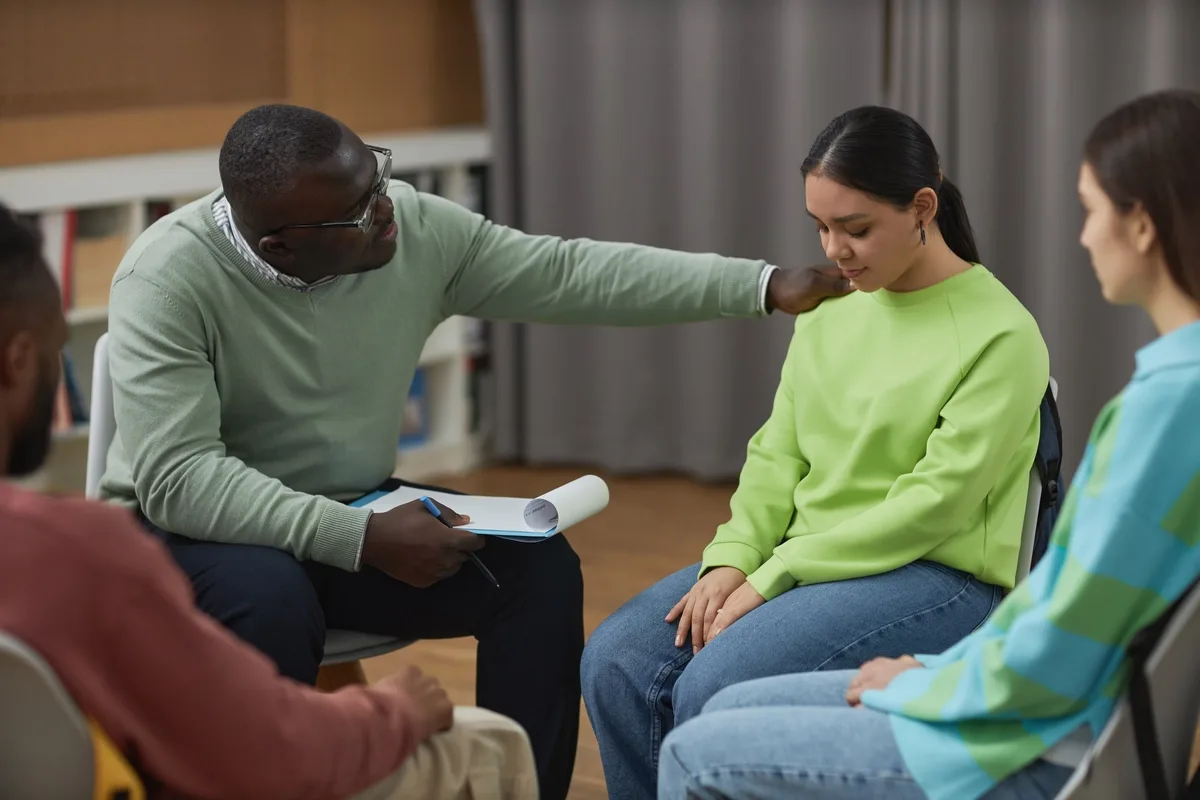24/7 Helpline:
(866) 899-221924/7 Helpline:
(866) 899-2219
Learn more about PTSD Treatment centers in Naytahwaush
PTSD Treatment in Other Cities

Other Insurance Options

Ambetter

Meritain

Sliding scale payment assistance

ComPsych

CareSource
Beacon

Holman Group

Access to Recovery (ATR) Voucher

UMR

BlueCross

Choice Care Network

Coventry Health Care

Regence

Evernorth

MVP Healthcare

Oxford

United Health Care

WellPoint

Highmark

WellCare Health Plans

























White Earth Men’s Substance Abuse – Primary Care
White Earth Men’s Substance Abuse – Primary Care is a public rehab located in Mahnomen, Minnesota. W...

















